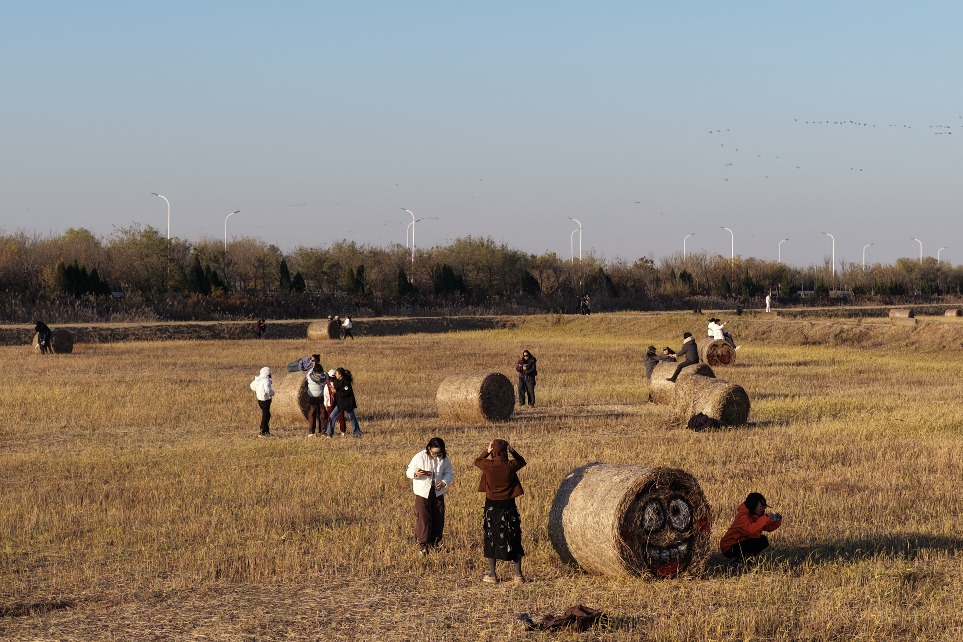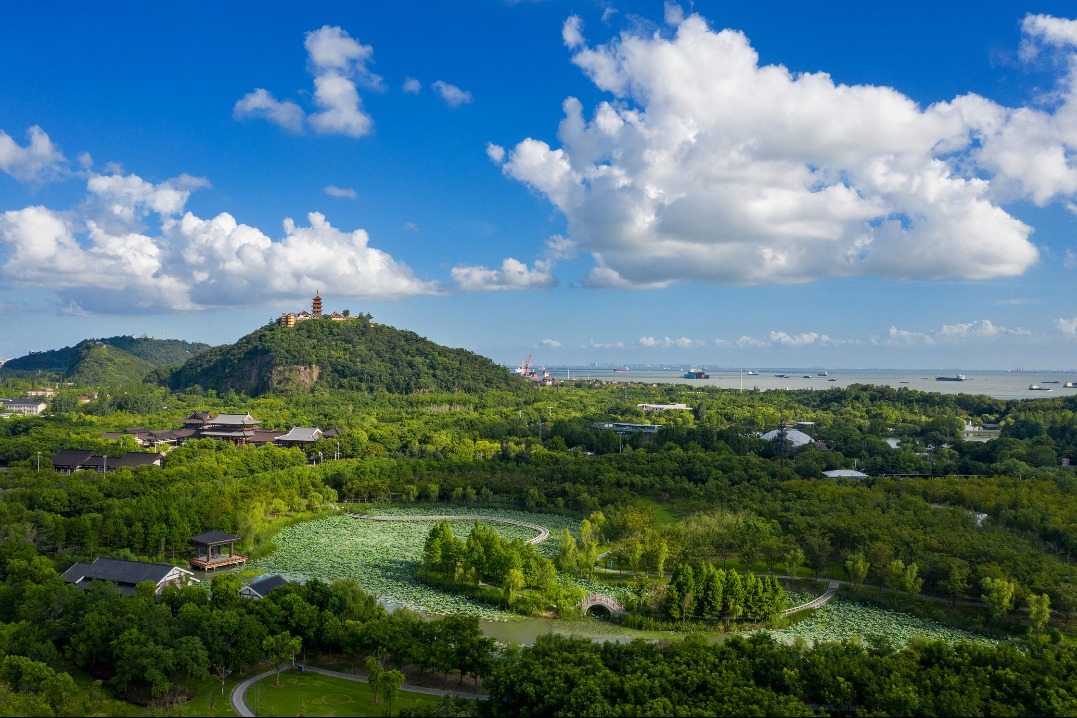World can be cleaner through teamwork
By Harvey Morris | China Daily Global | Updated: 2020-09-16 10:05

Authorities in China's northern Hebei province recently launched substantial cash rewards to whistleblowers who expose illegal polluters in the heavily industrialized region.
It was the latest in a range of measures taken across the country to tackle a problem that has pushed it into the top spot for its contribution to global pollution.
A period of rapid industrialization, coupled with continued use of coal and wood as domestic fuel, created the phenomenon of smog-shrouded cities.
It was not a uniquely Chinese problem. The World Health Organization has estimated that nine out of 10 people in the world breathe air containing high levels of pollutants, leading to 7 million premature deaths every year.
However, new research indicates that measures undertaken in China over the past years have had a positive effect and are saving lives.
The research, published by medical journal The Lancet and partly funded by the Bill& Melinda Gates Foundation, found that airborne pollution in China had dropped by up to a third between the peak year of 2013 and 2017. Annual pollution-related deaths were down to levels not seen since 1990.
China's achievements were highlighted in a 2019 United Nations report that noted a dramatic decline in pollution levels in the capital, Beijing, in the previous half decade.
"This improvement in air quality didn't happen by accident," Joyce Msuya, acting head of the United Nations Environment Programme, said at the time. "It was the result of an enormous investment of time, resources and political will."
"China has a lot to offer in terms of lessons, not least around climate change and beating pollution," Msuya said. "And we look to share these types of lessons with other countries that are undergoing similar challenges."
Progress is apparent in the example of Hebei, one of the Chinese provinces most afflicted by smog. The air quality there has improved significantly since 2014, with the concentration of damaging airborne particles falling 13 percent in the first seven months of 2020.
There, the authorities have shut down steel and chemical plants and switched from coal to natural gas for domestic heating. The public is now encouraged to identify those who dump poisonous waste or who try to cover up their polluting activities.
At the national level, Premier Li Keqiang chaired a State Council meeting this month that resolved to take further steps to prevent and control air pollution and promote green development.
The strategy will include cleaner use of coal and a stepped-up transformation of the steel, petrochemical and other industries.
The authorities also want to speed up a switch from motorized cargo traffic to rail in the face of increasing pollution from vehicle-based emissions.
People in China and elsewhere were offered a glimpse of a possible future through the unforeseen intervention of the COVID-19 pandemic.
One study in the United States found that global lockdowns imposed to counter the spread of the disease had reduced pollution by between one-third and two-thirds in a range of countries.
The study, published by the US National Academy of Sciences, acknowledged that a global lockdown was not sustainable but noted that public health would be improved if economies avoided a return to business as usual once the health crisis passed.
Some researchers found that the effects of pollution made the virus more lethal among those who contracted it.
Data shows that Europe is catching up with China in an inevitable rebound of pollution to pre-COVID-19 levels. But the unintended benefit of the lockdowns in terms of cleaner air may have focused minds on stepping up a transformation to a greener future.
Simon Birkett of the United Kingdom group Clean Air in London said that, until the lockdown, people had become so accustomed to air pollution that they hardly noticed it. The clean air they had been experiencing recently might provide a catalyst for change.
"Take a deep breath, pause and ask yourself, do you enjoy this?" he said. "Do you enjoy a quieter city? This is something we know how to do; let's try and head to this a bit faster."
In the short term, there will be an inevitable return of pollution to pre-COVID-19 levels, as indicated by the rebound from other global events such as the 2008 global financial crisis.
However, as the experience of China and others has shown, a consistent effort to chip away at the factors creating pollution can have a positive impact.
The solutions to banishing poisonous air and the associated challenge of climate change remain what they were before the disruption of the pandemic: better technologies and policies to replace fossil fuels, and the investment to pay for them.
China may be among those to show a lead, but international cooperation will remain vital to making a cleaner world a reality.
The author is a senior media consultant for China Daily UK.
























